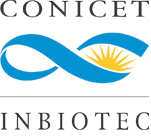Environmental and Experimental Botany, Volume 182, February 2021, 104310, 2021
Highlights
- The levels of stress proteins might be modulated via the 5’- and 3′-untranslated regions (UTRs). Many examples and some control mechanisms have been described involving 5’-UTRs; however, little is known regarding those implicating 3′-UTRs.
- A group 6 LEA gene from common bean (PvLEA6) responds to water deficit conditions. This response is controlled at the transcriptional level through its promoter, and it is enhanced by its transcript 3′-UTR.
- The 3′-UTR enhancing effect on PvLEA6 protein levels occurs post-transcriptionally, allowing a preferential mRNA polysome loading under water deficit and suggesting their involvement in the control of translation.
- The 3′-UTR enhancing effect was delimited to a 170 nt region, where two specific boxes (B1 and B2) showed to be relevant for this response.
- B1 and B2 boxes are conserved in 3′UTRs from transcripts of different legume species. Many of these transcripts are responsive to water deficit conditions.
- PvLEA6-3′UTR 170 nt fragment specifically binds to proteins present in water deficit extracts.
Abstract
To assure an efficient protein production under stress conditions, some transcripts are modulated at the translational level. To better understand the control of protein production under stress, we analysed the enhancing effect of the 3′ untranslated region (UTR) of the water deficit responsive gene PvLEA6 from Phaseolus vulgaris on the regulation of its expression. GUS activity and transcript loading on polysomes were analysed using Arabidopsis transgenic plants with constructs containing GUS open reading frame fused to wild type or mutated PvLEA6-3′UTR, driven by the PvLEA6 promoter, grown under optimal or stress conditions. The effect of the PvLEA6-3′UTR on gene transcription and transcript stability was discarded. We demonstrated that the PvLEA6-3′UTR allows preferential polysome loading of the GUS reporter transcript under water deficit. The effect of this region on protein synthesis was also supported by in vitro translation data. Particular conserved motifs in this region responsible for translation stimulation were identified. Specific interaction of the 3′UTR with cellular protein(s) was shown. Our data support a specific role of PvLEA6-3′UTR leading to efficient protein synthesis and hence a competent response under water deficit and suggest the participation of mRNA binding proteins in translational enhancement of the PvLEA6 mRNA.
Keywords
